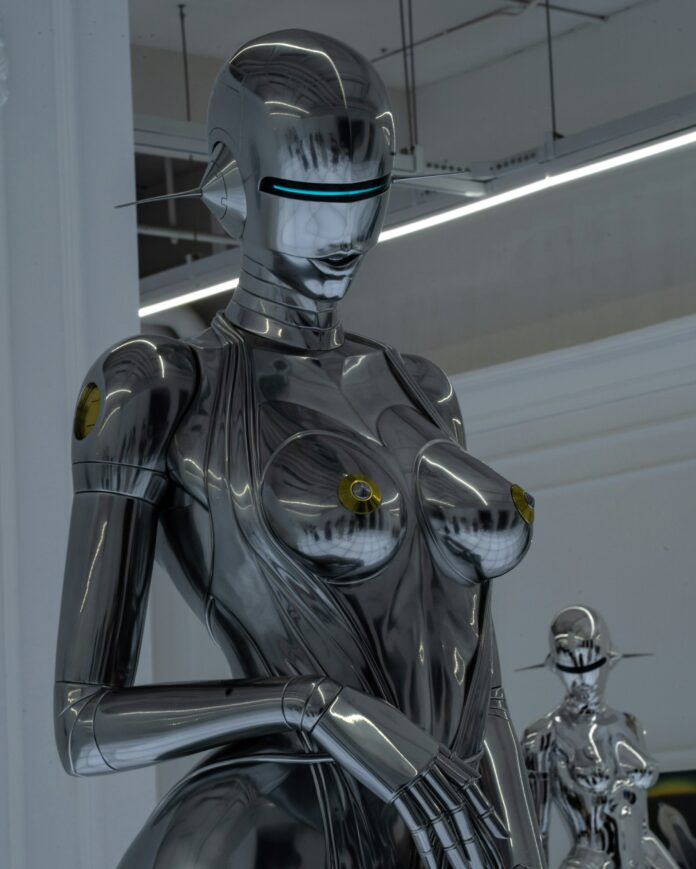As technology continues to evolve, one of the most profound changes impacting our daily lives is the rise of artificial intelligence (AI). While AI offers groundbreaking innovations across various industries, its effect on the job market and the future of work cannot be ignored. Automation and AI are poised to transform how we work, what skills are in demand, and even how we structure our professional lives. While many fear job losses and economic disruption, AI also presents opportunities for new job creation, greater efficiency, and more personalized work experiences. This article explores the implications of AI for the workforce, including job automation, the need for reskilling, and how AI is shaping career opportunities.
1. Job Automation and the Changing Landscape of Employment
One of the most debated aspects of AI’s role in the future of work is its potential for automation. AI-powered systems are already replacing human labor in routine and repetitive tasks across a wide range of industries, from manufacturing to retail, customer service, and even medicine. For example:
- Manufacturing and Industry: AI and robotics are already replacing traditional factory jobs that involve repetitive actions, such as assembling products or performing quality checks. These roles are being replaced by machines that can work 24/7 with high precision, reducing costs and improving productivity.
- Customer Service and Retail: AI-powered chatbots, virtual assistants, and self-checkout systems are also becoming commonplace in customer service and retail settings. These innovations allow businesses to provide faster, more efficient service while reducing labor costs.
While automation may reduce certain jobs, it also creates new opportunities in areas like AI programming, machine learning development, data analysis, and system maintenance. Workers who are displaced by automation may find new career paths in the tech sector, but they will need to acquire new skills to remain competitive in an increasingly tech-driven job market.
2. Reskilling and Upskilling: The Role of Education in the AI Era
As AI reshapes the job market, there is a growing need for reskilling and upskilling initiatives. Workers whose jobs are at risk due to automation must adapt to new roles by learning digital and technical skills. This trend is driving a revolution in education, with many businesses and educational institutions offering specialized training programs to prepare workers for the future.
- Reskilling Initiatives: Programs like Google’s Career Certificates, Amazon’s Upskilling Program, and Microsoft’s Skills for Jobs are designed to help workers transition into new, high-demand fields like data analysis, software development, and cybersecurity.
- Lifelong Learning: The rise of online learning platforms, such as Coursera, edX, and Udacity, has made it easier for individuals to gain new skills at their own pace. Workers no longer need to return to traditional universities to acquire new knowledge; they can take online courses and certifications that provide them with up-to-date skills required in the AI-driven workforce.
The need for reskilling highlights the importance of adapting education systems to better align with the demands of the digital age. In the future, individuals will need to engage in continuous learning throughout their careers to remain relevant and competitive.
3. AI’s Role in Personalizing Work Experiences
AI’s potential goes beyond job automation. It also promises to transform how people work, making work environments more personalized and efficient. AI can help organizations optimize workflows, enhance productivity, and create personalized experiences for workers.
- AI-Driven Productivity Tools: AI-powered tools, such as personal assistants, scheduling software, and project management systems, can help workers prioritize tasks, organize schedules, and streamline workflows. These tools improve individual productivity and team collaboration.
- Remote Work Optimization: As remote work becomes more common, AI is playing a crucial role in helping people manage their home offices. Virtual collaboration tools, automated scheduling, and AI-driven communication platforms can make remote work more effective by facilitating seamless collaboration and reducing time spent on administrative tasks.
- Personalized Career Paths: AI can also be used to support career development by identifying skills gaps, suggesting training opportunities, and even helping individuals explore career paths based on their strengths and interests. AI algorithms can analyze work history, performance metrics, and personal preferences to recommend personalized career development plans.
By optimizing workflows and enhancing job satisfaction, AI is helping create a more flexible, adaptive, and rewarding work environment.
4. The Ethical Implications of AI in the Workplace
While AI offers significant advantages, its integration into the workplace raises important ethical concerns that need to be addressed. Key issues include:
- Bias and Discrimination: AI algorithms can perpetuate biases if they are trained on skewed data or if the design process lacks diversity. In hiring, for example, AI tools used to screen resumes and evaluate candidates may unintentionally favor certain demographic groups over others, leading to discrimination.
- Privacy Concerns: The use of AI to monitor employees’ activities, such as tracking productivity or analyzing communication patterns, raises privacy concerns. Workers may feel that their autonomy is being undermined if AI tools are used to micromanage their every move.
- Job Displacement: The fear that AI will replace human workers is a significant concern, especially for those in low-wage or manual labor jobs. While AI may lead to new job opportunities, many workers may struggle to transition to new roles without access to proper training and support.
As AI becomes a more integrated part of the workforce, it is essential for companies, governments, and society at large to address these ethical challenges. Transparent policies, inclusive design practices, and clear regulations can help ensure that AI serves to benefit workers, rather than undermine their rights or job security.
5. The Future of AI in the Workplace: Collaboration, Not Competition
Looking ahead, the future of AI in the workplace is likely to be one of collaboration, not competition. AI will not replace human workers entirely but rather complement human abilities by automating mundane tasks and enabling workers to focus on higher-level, creative, and strategic work.
In industries like healthcare, AI can assist doctors by analyzing patient data and providing insights, while human doctors can focus on providing personalized care and making complex decisions. In creative fields like marketing and design, AI can help with data analysis, trend forecasting, and content creation, but human creativity and emotional intelligence will remain essential.
As AI technology continues to advance, it is crucial to foster collaboration between humans and machines to create a future where AI enhances work rather than diminishes it.
Artificial intelligence is undeniably shaping the future of work. From job automation and the need for reskilling to AI-driven personalization and ethical concerns, AI is transforming the workplace in profound ways. While challenges remain, the integration of AI into the workforce offers exciting opportunities to create a more efficient, productive, and personalized work environment. The key to a successful AI-powered future lies in collaboration between humans and technology, and in ensuring that AI is used ethically and responsibly to benefit both workers and industries.

xu-haiwei-iE7AmEF-9wk-unsplash-1.jpg
Views: 10






